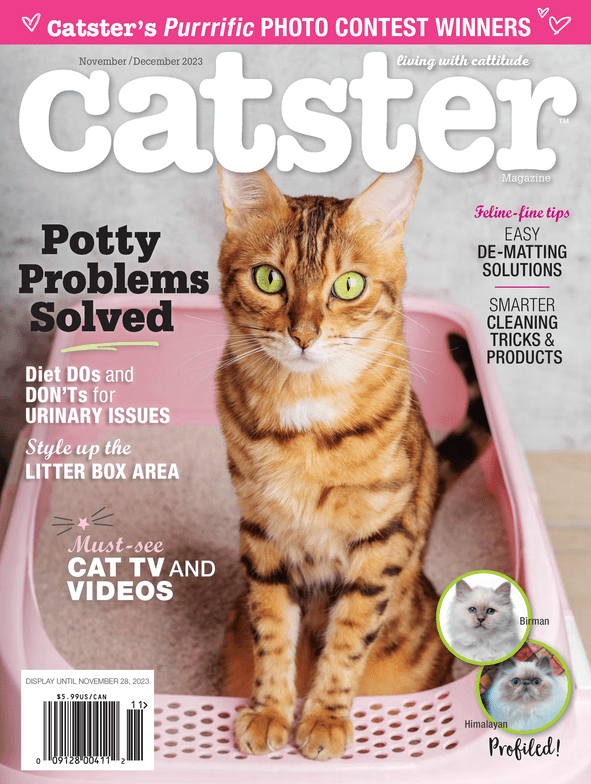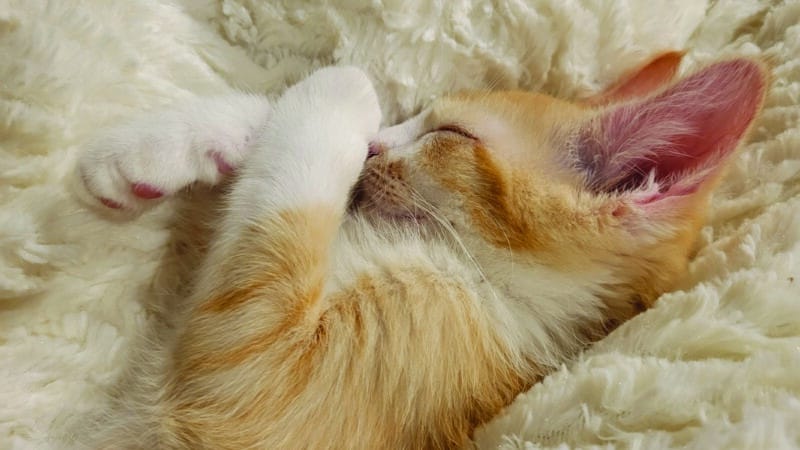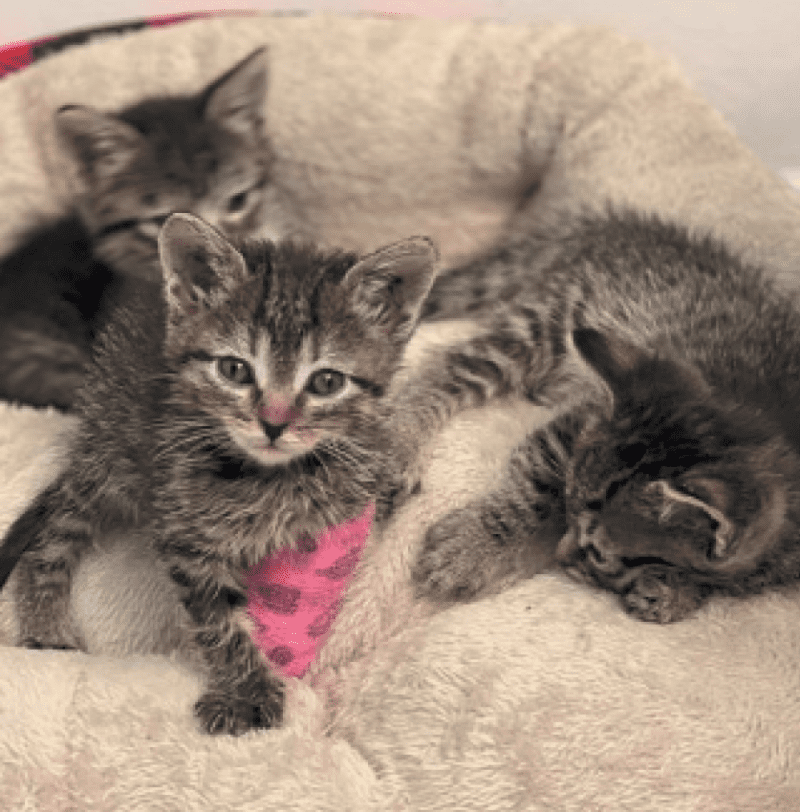We all know that there is something inherently soothing, particularly during times of high anxiety, in playing or spending time with our cats. Pregnant women have tons of things to worry about during the grueling and wonderful nine-month marathon that constitutes the typical pregnancy. Stories have been circulating for years now, terror tales about cats and pregnancy. You may ask yourself, “Can I pet my cat while pregnant? Will I get toxoplasmosis?” You may even wonder whether getting pregnant means you have to give up your feline friend completely.
Fear not. You absolutely can pet your cat during pregnancy, and no, you don’t have to relinquish your favorite fluffy pal just because you are in a family way. What we’re talking about today is not your cat, but a parasite called Toxoplasma gondii, and a disease it causes, toxosplasmosis. It can affect pregnancies and have debilitating long-term effects on children, but these outcomes are rare. It is also easily avoided. Let’s learn more about cats, pregnancy and parasites!
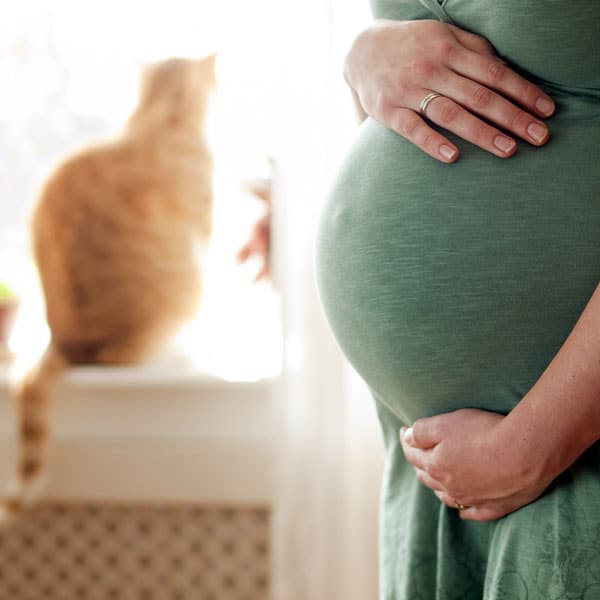
What is Toxoplasma gondii? What’s it got to do with cats?
Toxoplasma gondii is a single-celled organism, and one of the most common parasites in the world. Cats play a critically important part in its lifecycle. Where there are cats, you’ll find Toxoplasma. Wild and domestic cats, especially those that hunt or spend a lot of time outside, eat rodents or birds who are infected with the Toxoplasma parasite. The parasite is also present in feces, becoming active within one to five days of being defecated. A cat may step in and ingest it during the normal process of self grooming.
A cat’s small intestine is the only place where Toxoplasma gondii can reproduce. Once they’ve established a foothold in the epithelial cells of a cat’s digestive tract, they mature sexually and begin having their own offspring, little eggs called oocytes. They continue doing this until the host cell pops. These oocytes then pass out in a cat’s feces. Any mammal — humans included — that comes in to contact with and ingests these oocytes can develop the disease toxoplasmosis.
What is toxoplasmosis?
Toxosplasmosis has a scary-sounding name, and I admit, anything to do with parasites makes my skin crawl. However, you or someone you know has probably had the disease, experienced symptoms, recovered and never even knew it. The Centers for Disease Control estimate that 18-percent of the current American population are carriers of toxoplasmosis. In healthy people with functioning immune systems, toxoplasmosis may not cause any symptoms or discomfort of any kind. Some may experience flu-like symptoms which pass relatively quickly.
Can toxoplasmosis affect pregnancy?
Yes, and this is why people are frightened that petting their cats while pregnant might endanger a gestating fetus. Toxoplasmosis is most dangerous to people with weak immune systems, or, like a developing fetus, with no immune system to speak of.
If a woman ingests the Toxoplasma parasite while pregnant, both the parasite and the disease can be passed to the fetus in utero. Vulnerable in the womb, the fetus can suffer long-term damage to its eyes and vision or damage to its brain. A particularly devastating case of toxoplasmosis can lead to stillbirth. But these are all worst-case scenarios.
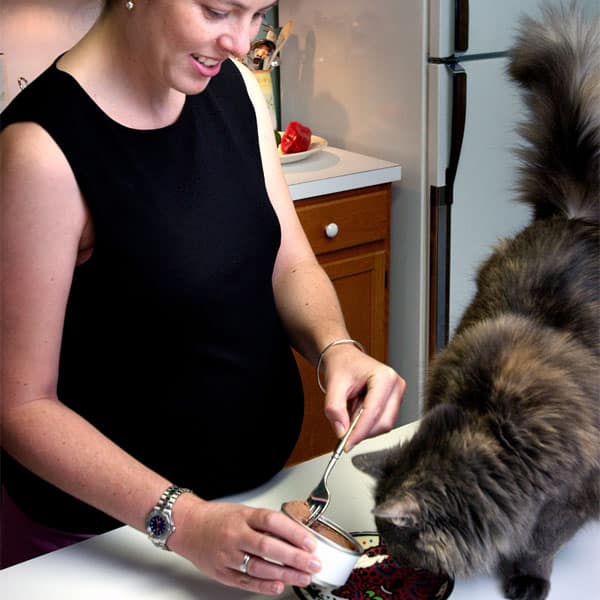
Pregnancy and cat litter
The reason cats find themselves in the crosshairs when it comes to toxoplasmosis and pregnancy is cat litter. Because infected cats shed Toxoplasma eggs in their feces, it is true that pregnant women should not handle or change cat litter. Toxoplasma eggs become active within five days of being excreted, but that doesn’t mean you can or should wait to change or clean the cat litter.
If you are pregnant and live alone, schedule friends, family or associates to change your cat’s litter on a daily basis. If you are pregnant and must change the litter yourself, make sure that you have a ready supply of disposable gloves. After throwing away the gloves, wash your hands thoroughly with warm water and soap. The fecal-oral route is how Toxoplasma passes from cat feces to humans.
Are you sure my cats don’t threaten my pregnancy?
Yes. Quite sure. Toxoplasma is a common parasite, and toxoplasmosis is a common parasitic disease, but as above, cat feces is only one route of transmission. It is transmitted when a person ingests the Toxoplasma eggs, but it’s very unlikely that you’ll catch it from contact with cat dung, and certainly not from petting your cat. There is a risk, however remote. How can you minimize or eliminate it altogether?
- If you are pregnant or planning to get pregnant, get tested for toxoplasmosis. If you’ve already had the disease, chances are you have developed an immunity to the disease and it poses neither you nor your fetus any risk.
- Keep your cat inside your home for the duration of the pregnancy.
- Feed your cat only store-bought, canned or dry cat food.
- Get family, friends or neighbors to clean the cat litter daily.
If you want more security, get your cat tested for toxoplasmosis. A cat who has been a carrier of the Toxoplasma parasite can only shed the eggs in her feces for two weeks after ingesting it herself. After initial exposure, the chances of her ever exposing anyone to Toxoplasma gondii are infinitesimal.
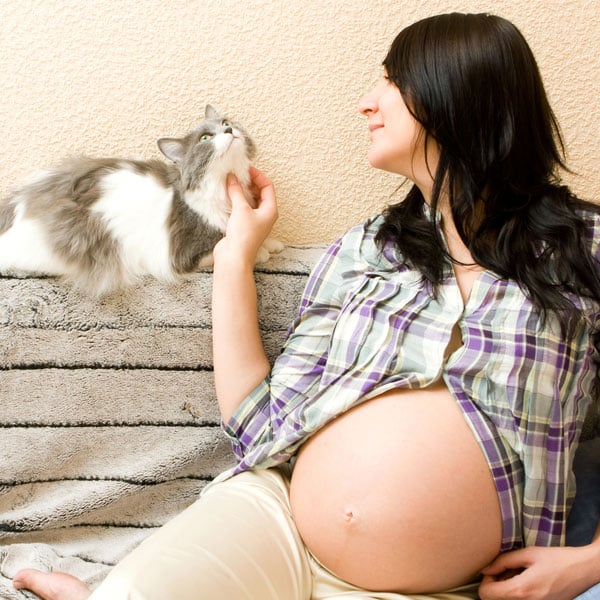
Non-cat vectors for the Toxoplasma parasite
Yes, you can get toxoplasmosis from touching cat feces and then touching your mouth. Why would you do that, though? You and your gestating fetus are at far greater risk of contracting the parasite and the disease in other ways during pregnancy. These include:
- eating raw or undercooked meat
- handling meat and not washing your hands
- eating unwashed fruits and vegetables
- gardening and landscaping without gloves
Keep your cat! Pet your cat! Be pregnant!
Undercooked meats and yard work pose greater risks to your fetus than an indoor cat does. That’s just a fact. Your cat poses very minimal risk to carrying off a completely successful pregnancy. You don’t have to put your cat up for adoption, and of course you can pet him while you’re pregnant. Don’t take unnecessary risks, though. It takes a village, they say, to raise a child, and if someone’s contribution is cleaning and changing your kitty litter, then so be it.
Read more about cats and pregnancy on Catster.com:
- 5 Crazy Things People Say to Cat-Loving Pregnant Women
- How to Introduce a Cat to a Baby and Prepare Your Cat for the Change
- Pregnant Women: Don’t Get Rid of Your Cats!
About the author: Melvin Peña trained as a scholar and teacher of 18th-century British literature before turning his research and writing skills to puppies and kittens. He enjoys making art, hiking, and concert-going, as well as dazzling crowds with operatic karaoke performances. He has a 17-year-old cat named Quacko, and his online life is conveniently encapsulated here.



